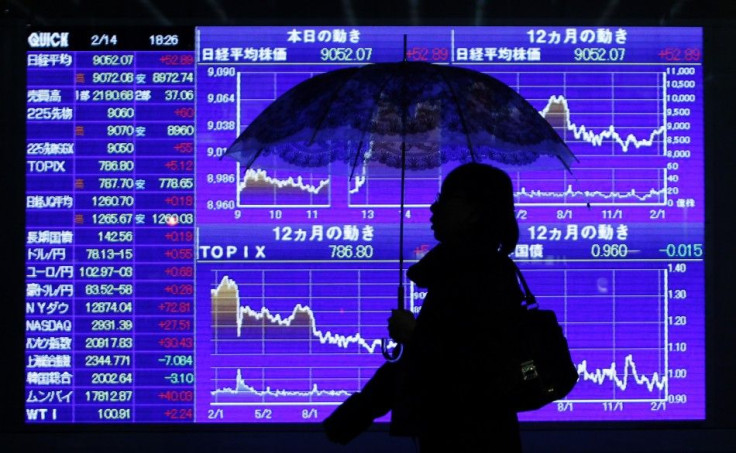Asian Markets Fall As Euro Zone Concerns Persist

Asian markets fell Thursday on increasing concerns about the debt crisis looming over the euro zone as national leaders were unable to present specific steps to overcome the situation in Europe.
Japan's Nikkei Stock Average fell 0.59 percent, or 50.82 points, to 8505.78, and South Korea's KOSPI fell 0.28 percent, or 5.07 points, to 1803.55. The Chinese Shanghai composite index dropped 0.31 percent or 7.39 points to 2356.05, and Hong Kong's Hang Seng declined 0.55 percent, or 103.81 points, to 18682.38.
Market sentiment continued to be negative as European leaders, who met in Brussels Wednesday to discuss the situation in Greece, were unable to announce any concrete measures to take care of the worsening debt crisis in the euro zone. The informal summit of the European Union leaders, which was expected to lay the groundwork for an agreement on pro-growth measures to be announced at the next formal EU summit on June 28 and 29, ended without any specific announcement.
Following the post-EU summit press conference this morning, the optimism faded quickly in absence of compromises made among the European leaders, a note from Credit Agricole said. Overall, European leaders reiterated that they want Greece to stay in the euro zone with respecting commitments.
There are concerns that parties opposing austerity measures in Greece will gain a majority when the country holds fresh elections on June 17. If that happens, Greece will not receive a bailout package, which would cause its banking system to collapse, leading to its exit from the euro zone.
Another factor that dragged down Asian market sentiment was the preliminary HSBC Flash Purchasing Managers Index (PMI) report that China's manufacturing activity worsened in May compared to April and continued to contract for the seventh straight month. The preliminary reading of the PMI, a measure of nationwide manufacturing activity, fell to 48.7 in May compared to 49.3 in April.
© Copyright IBTimes 2025. All rights reserved.





















